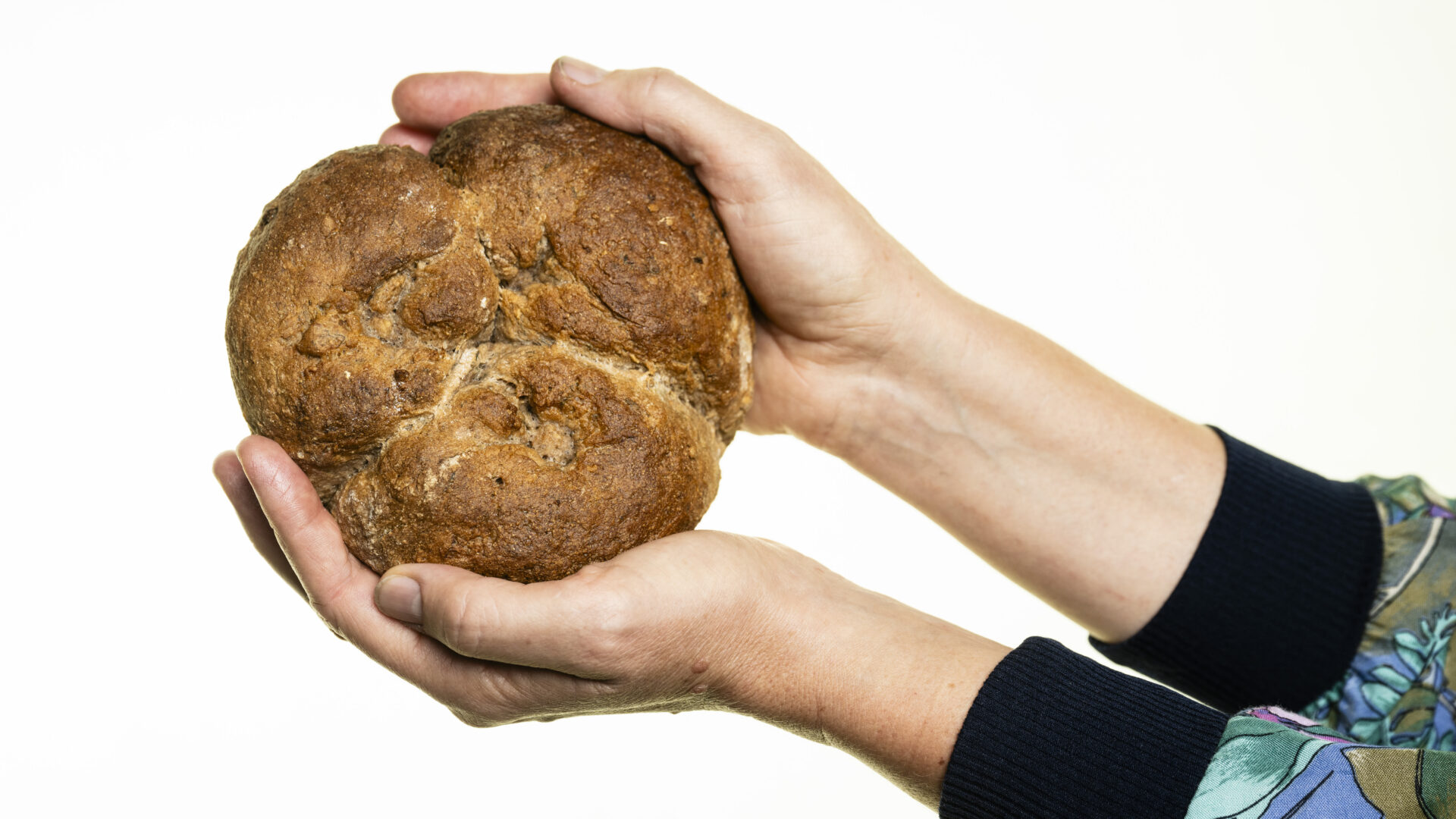Aune’s Zero Waste Herb Bread
By Anu Horttanainen (Helsinki)
This bread recipe blends the Japanese Yudane method with roots, leftover vegetables, nuts, seeds, honey, and herbs, resulting in a nutritious and flavourful loaf with extended shelf life. The low-yeast Yudane technique, which requires minimal yeast, is known for producing soft bread complementing the heartiness of the ingredients.
Incorporating prolific tubers like Jerusalem artichoke and spignel, which thrive in drought conditions due to their deep-root systems, highlights the recipe’s ecological focus on resilience, minimal water use, and dietary diversity.
These roots not only reduce water usage but also introduce beneficial fibres such as inulin, promoting gut health. Roots also shape and enrich the soil. Spignel (Meum athamanticum), commonly used in herbal remedies, contributes soothing properties for digestion. Additionally, the recipe’s use of leftover pantry items and vegetables supports food waste reduction.
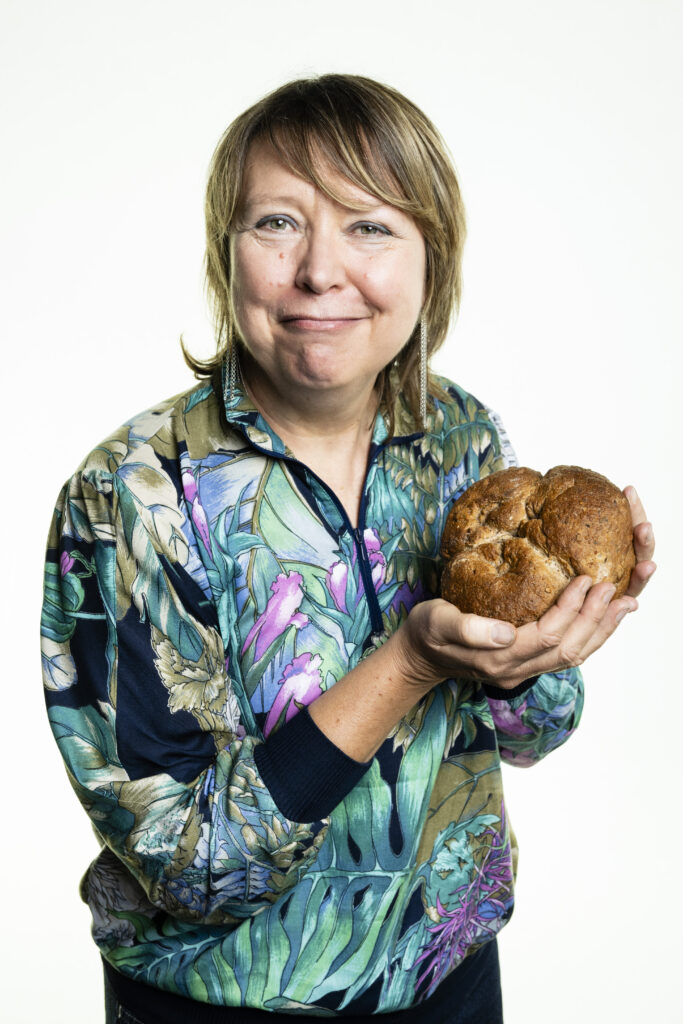
Photo: Veikko Somerpuro.
Ingredients
Day 1
Yudane (“Hot Starter”):
1 dl boiling water
1 dl semi-coarse spelt flour (Birkkala), organic
Mix the water and flour into a porridge-like consistency. Cool and store in the fridge covered with plastic wrap overnight (can be used within 3 days).
Day 2
Bread Dough (for one loaf):
1.5 dl (140 g) oat milk (or water)
1/2 dl (60 g) yudane (“hot starter”)
1 tbsp (25 g) honey (local or Finnish, e.g., Korpiaho Honey)
1 tsp (5 g) dry yeast
1 tbsp (20 g) melted butter, olive oil, or rapeseed oil
3 dl (100 g) semi-coarse spelt flour, organic
3 dl (120 g) fine spelt flour, organic
1 tsp (5 g) salt
50-60 g boiled and mashed leftover roots (potato, carrot, Jerusalem artichoke, or beetroot)
1/2-1 dl (20-50 g) chopped nuts/seeds (walnuts, sunflower seeds, or pumpkin seeds)
1/2 dl (5 g) chopped herbs (spignel, or tarragon, sage, marjoram, basil)
Butter or oil (for greasing the loaf pan)
Method
Prepare the Dough: In a bowl, mix the yudane, oat milk, melted butter, mashed root vegetables, and honey. In a separate bowl, mix the dry ingredients (spelt flours, salt, nuts, and herbs). Gradually add the dry mixture to the wet ingredients, kneading the dough for 10-15 minutes until it becomes smooth. If the mashed root vegetables add too much moisture, incorporate extra flour until the dough firms up.
First Rise: Shape the dough into a ball with floured hands, cover the bowl with a lid or cloth, and let it rise in a warm place (e.g., an oven with just the light on) for about 1 hour.
Shape the Dough: After rising, divide the dough into three equal portions. Let the dough rest under a cloth for 10-20 minutes. Roll each portion into a flat, 1 cm thick sheet. Fold each sheet into thirds twice, rotating 90° after each fold, to create layers.
Second Rise: Place the folded dough in a greased loaf pan or baking dish. Preheat the oven to 225°C while allowing the dough to rise under a cloth.
Check Dough: Use the dough pressure test to determine readiness: if the dough rises slowly after pressing, it’s ready to bake. If it does not rise back, the rise has gone too long, but it can still be baked. If it rises back immediately, continue rising the dough.
Bake: Smear the surface of the bread with oat milk. Place the loaf pan in the oven, reduce the temperature to 190°C, and bake for 25-30 minutes. The bread is done when it makes a hollow sound when tapped. Let the bread cool on a wire rack for an hour, covered with a cloth to maintain a soft crust.
Storage: The bread stays moist for 3-4 days if stored in a plastic bag. Keep it in a cool place to avoid moulding, as the bread contains no preservatives.
Maaleipä Recipes
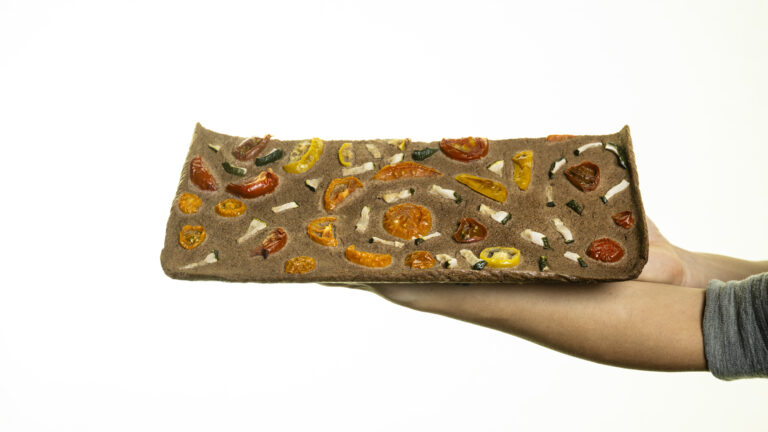
Acorn Flatbread
The Acorn Flatbread by Suvi Tiihonen from Keuruun Ekokylä contains leached acorns— a not very well known food from the forest—, buckwheat flour, zucchini and tomato.
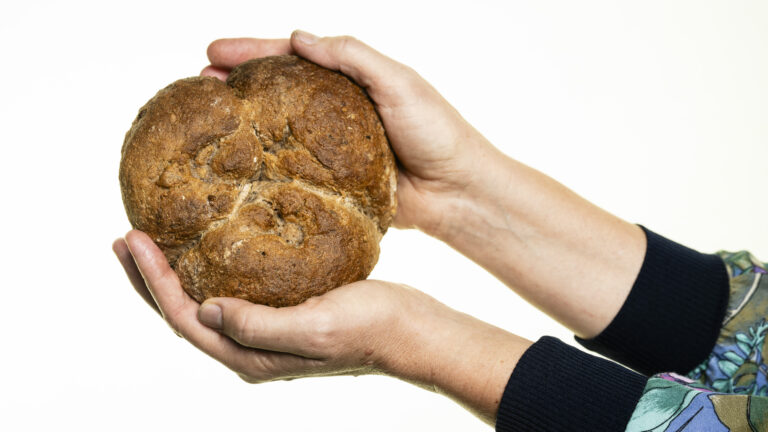
Aune’s Zero Waste Herb Bread
Aune’s Zero Waste Herb Bread is baked in Japanese-style Yudane and reuses leftover roots and other vegetables with an incredibly rich variety of nuts seeds and herbs.
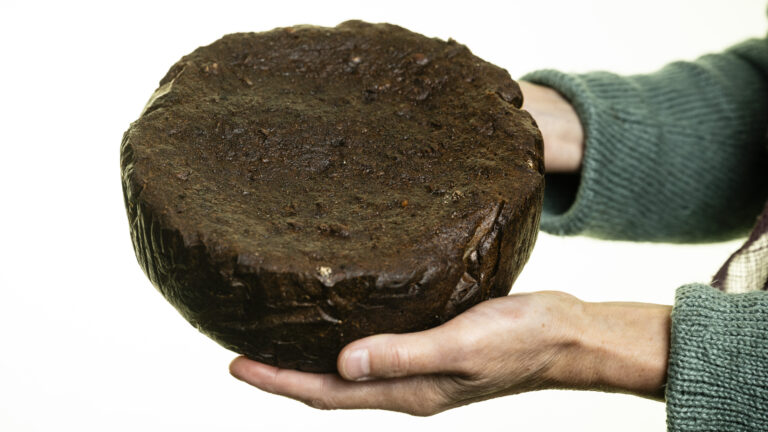
Gluten Free Hemp Buckwheat Bread
Merja Teräsvuori’s naturally gluten-free Hemb-buckwheat bread is made from a special combination of locally grown hemp flour, buckwheat flour, potatoes and an assortment of seeds.
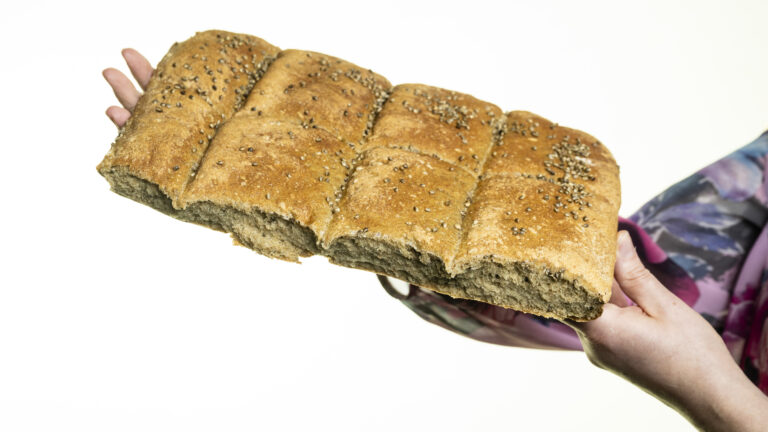
Nettle Pancake Breadlet
Nettle Pancake Breadlet is Kirsi Hakonen’s honest oven top bread with nutritious nettle together with a rich mix of flours including—hemp, barley and spelt.
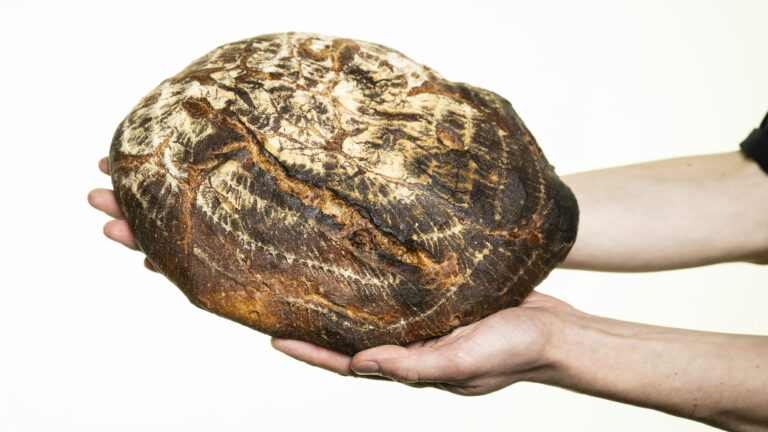
Wood Bread
Baked from pettu (pine bark) flour and flavoured with acorns, Jani Anders Purhonen’s fibre-rich Wood Bread celebrates the tradition of Pettu bread and takes a stand on the biodiversity of the farmland, using ingredients from the forest that could be a key part of our diet.
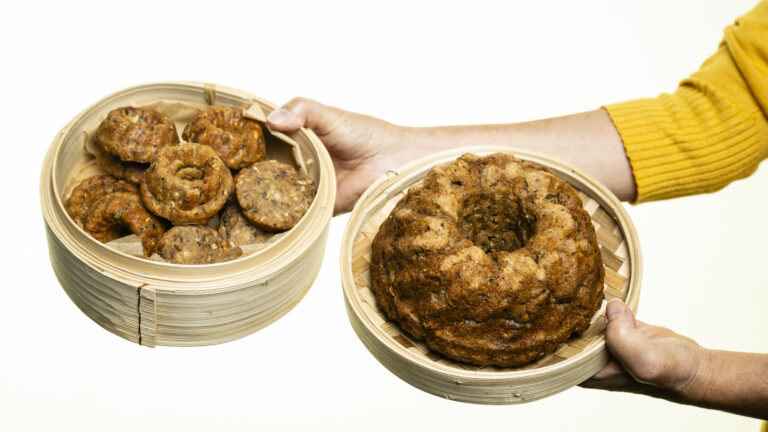
Round the Baltic Sea Caraway Cake
Anna Luttinen’s Round the Baltic Sea Caraway Cake contains spelt root, organically produced apples and zucchini, as well as caraway/cumin seeds—which are incredibly nutritious

